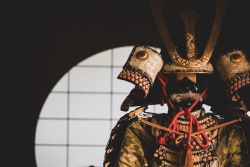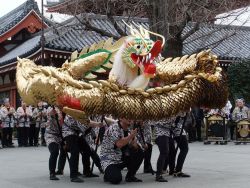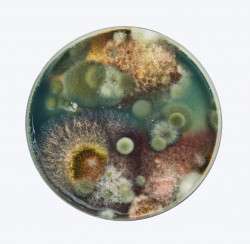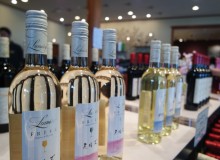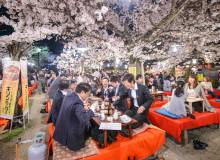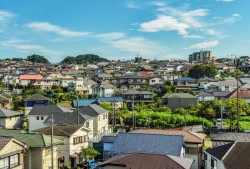
Originally published on metropolis.co.jp on June 2011
BRAND ON THE RUN

Phil Couzens
- “Planning escape from Japanese custody. It’s bloody hard to dig a tunnel with a chopstick,” tweeted British comedian/actor Russell Brand, husband of pop star Katy Perry, while being detained by immigration authorities before being denied entry to Japan. Brand has been arrested for assault in the past and has battled drug and alcohol addictions.
- It’s a draw! Court records show that in the two years since the introduction of the lay judge criminal trial system in Japan, five people were given death sentences and five trials resulted in acquittals.
- The head of a Tokyo health food company was arrested for pitching and promoting a “height-boosting” supplement without a proper license.
JUST WHAT WE NEED
- FIFA boss Sepp Blatter told PM Naoto Kan he hopes that Japan hosting the Club World Cup in December will boost morale after the March 11 disasters, and that “through football, there is hope.”
- Burmese freedom-fighter and opposition leader Aung San Suu Kyi sent a video message to the people of Japan, urging them to hang in there after the devastation of March 11.
- The Tokyo Metropolitan Government is doing its part to help cut down on electricity consumption this summer by having workers start their morning shifts up to an hour earlier than usual.
- A new Japanese low-cost airline owned in part by ANA has a peachy new name. Get ready for Peach Aviation.
- A stag beetle carcass estimated to be between 2,500 and 2,800 years old was found “preserved almost in full shape” at an archaeological dig in Nara Prefecture.
RECORD HAUL
- Mongolian yokozuna Hakuho won his seventh straight grand sumo tournament with a 13-2 record, equaling the record of former sumo bad-ass Asashoryu.
- A pair of masked men made off with ¥604 million after strong-arming a dozing security guard at a Tachikawa depot that handles cash deposits from the Tokyo Central Post Office. It was the biggest cash heist ever in Japan.
- Sony was hit by more bad news when it was revealed that an “online intruder” accessed one if its subsidiaries and pinched over $1,200 worth of redeemable gift points.
- The breach pales, of course, to an earlier one on Sony’s PlayStation Network and Online Entertainment services that “compromised the personal information” of over 100 million accounts.
- Then later, Sony revealed that “personal info on 8,500 customers of its online music service in Greece may have been leaked due to a cyber attack, while similar assaults by hackers occurred in Thailand and Indonesia as well.”
- So it might not come as a surprise that Sony said it was expecting to be in the red again in fiscal 2010 for the third year in a row with a group net loss of ¥260 billion, its biggest hit since 1995. They’re blaming this one on the March 11 earthquake.
- As expected, the March 11 earthquake and nuclear accident resulted in a huge drop off in the number of foreign visitors to Japan in April (295,800), down a record 62.5 percent from a year earlier, according to the Japan National Tourism Organization.
- BTW, April 2011 was the first month with less than 300,000 visitors since May 2003, when the SARS epidemic was all the rage in Asia.
COLA WARRIOR
- Brazilian sumo wrestler Kaisei revealed that he likes to take a few swigs of Coke before entering the raised ring, claiming the bubbly soda makes him “strong, powerful.”
- Cops arrested the leader and four members of a gang called the Dragons for stealing some ¥120 million worth of precious metals from a workshop in Yamanashi. The gang is apparently “made up of Japanese orphaned when they were left behind in China at the end of World War II.”
- A biologist caught a 7.3-kg soft-shelled turtle in Kyoto’s Kizu River estimated to be at least 50 years old. It could be the biggest soft-shelled turtle ever found in Japan.
- People in the Iwate fishing village of Otsuchi were ticked off when members of the anti-whaling group Sea Shepherd Conservation Society showed up in their town in May to continue their campaign against dolphin hunting. After the March 11 quake, area residents provided transportation and food for the stranded anti-whalers.
WELL IT’S ABOUT TIME
- Japan will finally get in line and abide by international rules on the abduction of kids from failed international marriages by signing of the 1980 Hague Convention on the Civil Aspects of International Child Abduction.
- Japan has decided to give back to South Korea some ancient Korean royal archives, known as “Joseon Wangsil Uigwe” (Royal Protocols of the Joseon Dynasty), that were moved here when Japan had control of the Korean Peninsula.
- Four huge cranes used to build the 634-meter Tokyo Sky Tree, the world’s tallest tower that is currently under construction, were dismantled and taken down.
- Two teachers in Akita Prefecture were in hot water for posting the names of students who didn’t donate money for victims of the March 11 earthquake and tsunami.
- It was reported that more than 300 elementary and junior high school students from six Fukushima Prefecture cities left and enrolled in schools elsewhere “due to lingering fears about radiation from the Fukushima No. 1 Nuclear Power Plant.” Can’t say we blame them.
- Two brothers already accused of stealing cash from the home of a nuclear crisis evacuee were hit with more charges after targeting another empty house in Hirono. “We were after money to cover our living costs and just to have fun with,” the brothers told police.
THE POORER SEX
- A government white paper entitled “Real Situation of Working Women” revealed that the average full-time wage for women in Japan was 69.3 percent that of men, down slightly from a year earlier.
- Kyushu University caved in to criticism and dropped plans to implement a quota for female students that was to begin in 2012. They had wanted to save a few seats for women in the math department of the Faculty of Sciences “to increase female researchers.”
- Just over 50 percent of the people who died in traffic accidents in Japan last year were 65 or older, a government report said.
- Last year’s traffic death toll was 4,863, down 51 from 2009.
Compiled from reports by AP, Japan Today, The Japan Times, The International Herald Tribune, The Asahi Shimbun, The Mainichi Daily News, The Wall Street Journal, Daily Yomiuri, AFP, Reuters, Kyodo.
